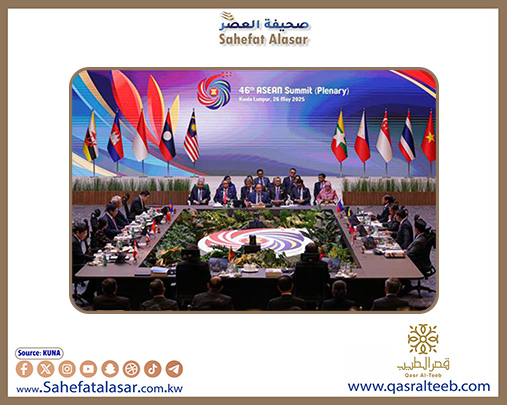


Malaysian Prime Minister Anwar Ibrahim emphasized the critical importance of maintaining the geo-economic cooperation framework between ASEAN, the Gulf Cooperation Council (GCC), and China during his opening address at the 46th ASEAN Summit and related summits.
Strategic Importance of Trilateral Cooperation
Called the ASEAN-GCC-China partnership a "strategic pillar" in today’s multipolar world
Highlighted its role in fostering inclusive and sustainable regional growth
Praised the model for reflecting "a reservoir of goodwill" among nations
Economic Challenges & Response
Expressed concern over rising protectionism (citing recent U.S. tariffs)
Noted ASEAN’s swift response by forming a task force for economic coordination
Stressed the need for multilateralism amid global trade fragmentation
Myanmar Crisis Update
Acknowledged progress through an informal advisory group led by former Thai PM Thaksin Shinawatra
Supported by regional leaders, including Brunei’s Sultan Hassanal Bolkiah and former Cambodian PM Hun Sen
ASEAN’s Founding Vision
Reaffirmed the bloc’s 1967 mission to enhance economic, political, and social integration
Includes 10 members: Indonesia, Malaysia, Singapore, Thailand, Philippines, Vietnam, Brunei, Laos, Myanmar, Cambodia
Strengthens cross-regional trade, energy, and infrastructure ties
Counters economic decoupling trends with a cooperative alternative
Positions ASEAN as a neutral yet influential player amid U.S.-China tensions
"This trilateral model symbolizes regional cohesion—its success will benefit the entire world."
"Protectionism threatens global stability, but ASEAN is responding with unity and confidence."
